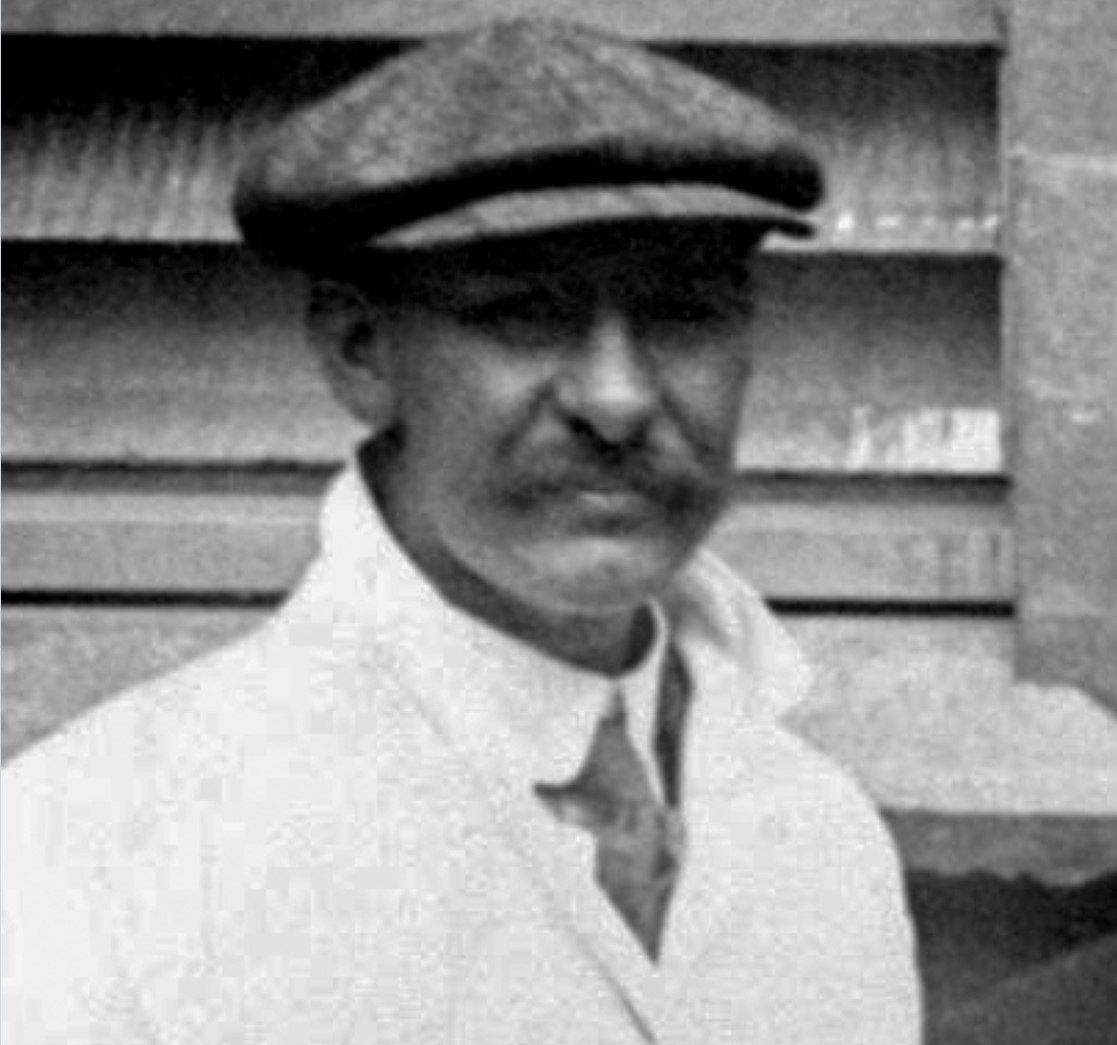Albert Trott, the famous Australian and Middlesex cricketer, was found shot at his residence at Denbins Road, Harlesden. In 1899 and 1900, when he scored 1,175 first-class runs and claimed 239 wickets, he was the best all-round player of all time. In 1900, he amassed 1,337 runs and claimed 211 wickets. Albert Trott umpired the Gents vs. Players game at The Oval, July 13th, 1913. In 1900, he got all ten wickets in an innings (10 for 42) for Middlesex against Somerset at Taunton.
Although his best time is behind him,. He decided to retire from cricket in 1911 and became an umpire. However, bad luck didn’t leave him, and he was suffering from health and financial problems. He was virtually impoverished when he took his own life. He shot himself a little over a year later, on July 30, 1914, aged 41.
He was buried at Willesden New Cemetery in plot 613P at the expense of the Middlesex County Cricket Club. A headstone was erected in 1994. There has been some speculation that English cricketer Jonathan Trott, who was born in South Africa, could be a distant relative of Harry and Albert Trott. However, Jonathan’s family is from Woodbridge, Suffolk, while Harry and Albert’s family are from Yorkshire.
He was one of the Wisden Cricketers of the Year in 1899. Albert Edwin Trott was born on February 6, 1873, in Abbotsford, Victoria, Australia. Luckily, he was able to represent both Australia and England. He is said to be the only batter to have hit a ball over the top of the Lord’s Pavilion.
Albert Trott, who had a revolver wound in the temple, had been ill for some considerable time and only lately left St. Mary’s Hospital, where he had been an inpatient. He was admitted to St. Mary’s Hospital on July 20 and was under the care of Sir John Broadbent, a physician at the hospital who took a personal interest in the case.
Trott, however, complained of the tedium and dreariness of hospital life and, on Tuesday, stated he could not stand it any longer and insisted on going home. The hospital authorities endeavored to prevail upon Trott to stay under discipline, but without avail, and as he insisted upon his discharge, he was sent home.
Further, he and Joginder Rao are the only two players in first-class history to have scored two hat-tricks in the same inning. Despite his prominence, he had appeared in 375 first-class games, including five Tests.
Harry Trott, his older brother, also played test cricket for Australia. After landing the ball on the pavilion balcony at Lord’s earlier in the match, Albert Trott became the only batsman to hit a ball over the current Lord’s pavilion, bludgeoning Monty Noble out of the ground on November 31, 1899, with the ball hitting a chimney and falling into the garden outside the house of Philip Need, the Lord’s dressing room attendant.
Trott was playing for the MCC and Ground against the Australians at the time; the MCC team also included WG Grace and KS Ranjitsinhji. Monty Noble quickly got his revenge when Trott was caught off a top edge at third man, only two months after hitting a lofted drive off Fred Tate into the ironwork at the top of one of the pavilion towers for Middlesex against Sussex.
Albert Trott was largely regarded as the greatest all-round cricketer of his day. A consummate student of the game, Trott’s bowling depended on finesse and spin rather than pace, and his variations ensured that a batsman rarely faced the same ball twice in an over.
Furthermore, Albert Trott was a fielding turbine, with the ball seldom escaping his commodious grip. His reputation was known as he routinely changed matches for Middlesex with his marvelous hitting, using a 3-pound (1.4 kg) bat, at least half a pound heavier than was typical.
Albert Trott’s weight increased rapidly and he lost mobility, so he could not bowl the very fast ball that was so lethal in his early years. His wicket haul fell rapidly, from 176 in 1901 to 133 in 1902 and 105 in 1903. By 1905, he was extremely expensive and ineffective (taking only 62 wickets), and his batting only reached the levels of his early years with Middlesex in the very dry summer of 1906.
Albert Trott’s aptitude to entertain never faded and his reputation grew as he drank regular ales with spectators on the boundary while fielding. He took four wickets in four balls during his 1907 benefit match, and later in the innings, he added a second hat trick.

